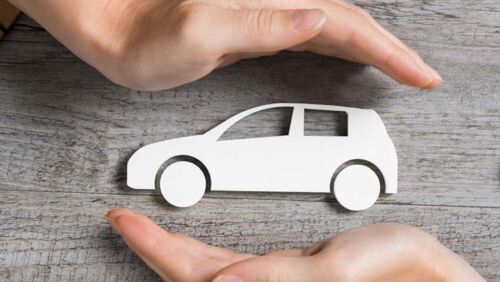Where to charge your EV (and how much it costs)
Charging an electric vehicle is typically one of the biggest concerns for new EV owners, and there are a lot of myths and misconceptions about the infrastructure, the time required and the costs.
The realities of the situation can vary based on the car, its charging capability, battery capacity, where you live or where you're travelling.
There are two types of electric current - alternating (AC) and direct (DC). The power in EV batteries can only be stored as DC, but they can also be recharged using AC, typically at home or at a fast-charging station, and the EV's converter will switch it to DC. Ultra-fast top-ups at a motorway station use a DC charger.
Charging at home
It can be extremely cost-effective and convenient to recharge your EV at home. In fact, for EV owners who have solar, recharging costs may be negligible, if not free.
Setting up a home charging station isn't overly costly.
The charging device, commonly known as a wall box, usually costs between $500 and $2000 depending on the supplier and the specs. Budget up to $1500 for installation, too.
A standard home charger runs on single-phase power and typically has a power output up to 7.4kW.
Costs will increase if you want a faster charger. Your home or business will need to have three-phase power if you want to take advantage of speedier AC on-board charging (11kW to 22kW). Not all EVs can handle that much, so make sure you pick the right set-up for your car.
If you don't have solar, check with your energy provider to make sure you're not overpaying. Some offer EV-specific energy plans that could save you hundreds of dollars, provided you charge at the stipulated times.
For instance, OVO Energy has an EV plan with a tariff of just 8 cents/kWh from midnight to 6am.
For example, if you have an EV such as a BMW iX1, which is capable of a maximum of 22kW AC charging, and your home charging station runs three-phase power, you may be able to fully charge the vehicle within that low-cost window. And with a 64.8kWh usable battery capacity, the cost could be as low as $5.82 on a tariff such as OVO's.
If you're concerned about staying up late to plug in your car and rising early to unplug it in time, most EVs have charging timers so you can simply plug in the vehicle when you get home from work and it will start charging when the timer dictates.
Should you use a suitable adaptor to simply plug into a regular powerpoint at home, recharging your EV could take days - literally.
Public charging network
Many cars have range calculators in their navigation systems to help you map your journey if you're doing a longer drive and need to charge along the way.
The charging network is constantly improving and expanding, but costs, and the time it takes to recharge, vary wildly.
For example, if you show up to a station with 50kW chargers, it will take considerably longer than if you were to plug into an ultra-rapid station (200kW or faster), provided your vehicle can cope with higher DC charging rates.
Your car's battery will only be able to charge at a particular rate, which is dictated by the vehicle's architecture. You shouldn't expect all EVs to be able to charge at the same speed, even if you are plugging into the fastest charger available.
Some of the most popular EVs on the market have DC charging rates of 80kW, meaning you might need to spend an hour or so to completely refuel. Others have the capability of charging much faster, with claims of 10%-80% charge in as little as 18 minutes if plugged into a 350kW charger.
The costs vary between suppliers and stations. Some cost as little as 40c/kWh for slower charging while others bill up to 85c/kWh for ultra-rapid charging.
If you do the maths, you'll realise that public charging isn't particularly affordable. A 65kWh battery could cost as much as $55 to recharge from empty.
Get stories like this in our newsletters.



